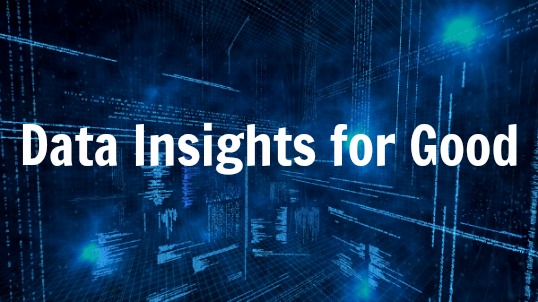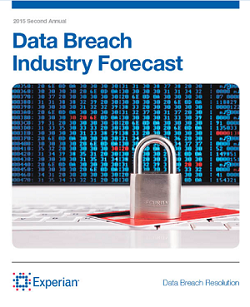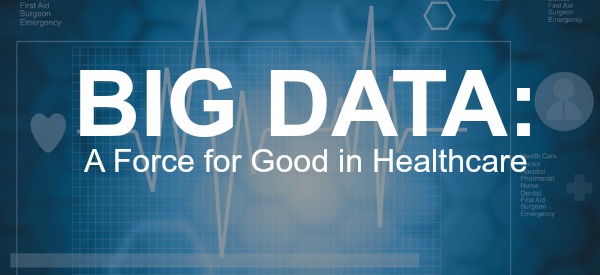Innovation
Insights from our Leaders

 Every day, 2.5 quintillion bytes of data are created – in fact, 90% of the world’s data was created in only the last few years. With the staggering amount of data available, we have an unprecedented opportunity to uncover new insights and improve the way our world functions. The implications of these new capabilities are perhaps nowhere else as crucial as within our government.
Public sector officials carry the great responsibility of conducting complex missions that directly affect our communities, our economy, and our nation’s future. The ability to make more informed, insightful choices and better decisions is paramount. Especially at a time of broader global unrest and uncertainty, Americans rely on our government to be transparent, fair, ready and to make the right decisions – our trust is in the hands of our elected officials and public servants.
Every day, 2.5 quintillion bytes of data are created – in fact, 90% of the world’s data was created in only the last few years. With the staggering amount of data available, we have an unprecedented opportunity to uncover new insights and improve the way our world functions. The implications of these new capabilities are perhaps nowhere else as crucial as within our government.
Public sector officials carry the great responsibility of conducting complex missions that directly affect our communities, our economy, and our nation’s future. The ability to make more informed, insightful choices and better decisions is paramount. Especially at a time of broader global unrest and uncertainty, Americans rely on our government to be transparent, fair, ready and to make the right decisions – our trust is in the hands of our elected officials and public servants.

Big data received a lot of press coverage in 2014; unfortunately, it wasn’t all kind. That’s too bad; because it’s not fair to lay the blame for every security lapse or e-mail misdeed squarely on big data. The truth is that some of the very technologies that are considered big data are in fact the same ones that best protect us from abuse. Like most technologies, big data can be used for good or it can be abused. However, I believe that the good that big data brings far outweighs any accompanying risks. While data security begins with common sense, and we must all deploy data security best practices, we should also appreciate the value in what big data offers.

At Experian, we focus on helping consumers navigate and better understand the world of credit. Recently, we’ve made some changes within our consumer products. We’re excited to share all the developments we’ve been working on – not the least of which is the inclusion of offering our members their FICO® Scores using Experian data. FICO® Scores are used in 90 percent of credit decisions. They’re the credit scores that most consumers recognize as being most relevant. We know this because they told us. Consumers asked us about FICO because a majority of lenders use FICO® Scores as a factor in their credit decisions – and we heard them.

 Black Friday has come and gone, and the holiday shopping season is in full swing. This year, retailers and economic experts alike have high hopes for robust spending and a needed economic boost. And so far the results look promising. On Cyber Monday, alone, the top online retail sites registered 242 million visits, followed closely by Black Friday’s 228 million visits. And according to a new survey from Experian Consumer Services, 36 percent of consumers plan to spend more on gifts this year than they did in 2013.
At Experian, everything we do is about putting insights into action. This entails formulating and analyzing insights that can help both consumers and businesses alike. We sat down with two of Experian’s leading experts, one from the consumer side of the business and another from our marketing services business, to find out more about the key trends that will define this holiday shopping season.
Guy Abramo, President, Experian Consumer Services and Matt Seeley, President, North America, Experian Marketing Services share their thoughts and insights below:
Black Friday has come and gone, and the holiday shopping season is in full swing. This year, retailers and economic experts alike have high hopes for robust spending and a needed economic boost. And so far the results look promising. On Cyber Monday, alone, the top online retail sites registered 242 million visits, followed closely by Black Friday’s 228 million visits. And according to a new survey from Experian Consumer Services, 36 percent of consumers plan to spend more on gifts this year than they did in 2013.
At Experian, everything we do is about putting insights into action. This entails formulating and analyzing insights that can help both consumers and businesses alike. We sat down with two of Experian’s leading experts, one from the consumer side of the business and another from our marketing services business, to find out more about the key trends that will define this holiday shopping season.
Guy Abramo, President, Experian Consumer Services and Matt Seeley, President, North America, Experian Marketing Services share their thoughts and insights below:

 The growing prevalence of widely publicized data breaches is sparking a change in the attitudes of business leaders and consumers when it comes to cybersecurity.
Board members and the C-suite can no longer ignore the drastic impact a data breach has on company reputation, and consumers are demanding more communication and remedies from businesses after a data breach occurs. As a result, the topic is a high priority facing businesses and regulators in 2015.
The Experian Data Breach Resolution group serviced more than 3,000 breaches in 2014, the most in more than a decade of handling breach resolution. While our data breach services and identity protection products assist companies after a breach has occurred, our experience and insights help companies beforehand to plan and better protect their reputations in the aftermath.
The growing prevalence of widely publicized data breaches is sparking a change in the attitudes of business leaders and consumers when it comes to cybersecurity.
Board members and the C-suite can no longer ignore the drastic impact a data breach has on company reputation, and consumers are demanding more communication and remedies from businesses after a data breach occurs. As a result, the topic is a high priority facing businesses and regulators in 2015.
The Experian Data Breach Resolution group serviced more than 3,000 breaches in 2014, the most in more than a decade of handling breach resolution. While our data breach services and identity protection products assist companies after a breach has occurred, our experience and insights help companies beforehand to plan and better protect their reputations in the aftermath.

It’s no secret that businesses are what drive the U.S. economy. The exchange of goods and services for business large and small is what our society is built on. But, did you know that big data is actually a driving force in commerce? How, you ask? Businesses rely on data -- just as we as consumers do -- to form the basis for everyday decisions. Experian has always been at the forefront of using big data, and over the years we have streamlined its uses to help drive commerce for the business community. Our commercial database contains unbiased information on more than 25 million active businesses in the U.S. However, data just scratches the surface of what we do. Our technology, analytical and consultative services help financial institutions and businesses (large and small) derive insights, which enable them to make more sound lending decisions, better manage their credit portfolios and acquire the right customers.

 With all the discussions around the risks of big data, the fact that it can be used as a powerful enabler of good seems to be missed. The benefits of big data can be seen throughout our day to day lives from simple things like traffic alerts to more impactful purposes like those seen in today’s healthcare environment.
At Experian we serve more than 2,800 hospitals and 9,000 physician practices and use big data to help serve their patients as quickly and efficiently as possible. Our data and technology guides hospitals, physicians and patients step by step through an increasingly complex healthcare process.
With all the discussions around the risks of big data, the fact that it can be used as a powerful enabler of good seems to be missed. The benefits of big data can be seen throughout our day to day lives from simple things like traffic alerts to more impactful purposes like those seen in today’s healthcare environment.
With all the discussions around the risks of big data, the fact that it can be used as a powerful enabler of good seems to be missed. The benefits of big data can be seen throughout our day to day lives from simple things like traffic alerts to more impactful purposes like those seen in today’s healthcare environment.
At Experian we serve more than 2,800 hospitals and 9,000 physician practices and use big data to help serve their patients as quickly and efficiently as possible. Our data and technology guides hospitals, physicians and patients step by step through an increasingly complex healthcare process.
With all the discussions around the risks of big data, the fact that it can be used as a powerful enabler of good seems to be missed. The benefits of big data can be seen throughout our day to day lives from simple things like traffic alerts to more impactful purposes like those seen in today’s healthcare environment.

For more than 20 years, Experian has been an advocate for full-file reporting, which means that we support the widespread reporting of alternative data—rental payments, utility payments and cellular telephone payments to name a few. For a large segment of the population, the reporting of these types of payments could provide opportunities to establish and/or build a credit file. In 2011, Experian recognized that positive rental payment data was missing from credit files and could be an opportunity for 100 million renters to finally be rewarded and not overlooked simply because they rent instead of own the place they call home. With this in mind, we led the industry to start incorporating on-time rental payments to credit files through our Experian RentBureau business and utilized new technology that could score consumers previously deemed unscoreable. This investment opened the doors to underserved populations and helped moved the needle to becoming more financially inclusive.

 More than 10 years ago I spoke about a trend at the time towards an underutilization of the information being managed by companies. I referred to this trend as “data skepticism.” Companies weren’t investing the time and resources needed to harvest the most valuable asset they had – data.
Today the volume and variety of data is only increasing as is the necessity to successfully analyze any relevant information to unlock its significant value. Big data can mean big opportunities for businesses and consumers.
More than 10 years ago I spoke about a trend at the time towards an underutilization of the information being managed by companies. I referred to this trend as “data skepticism.” Companies weren’t investing the time and resources needed to harvest the most valuable asset they had – data.
Today the volume and variety of data is only increasing as is the necessity to successfully analyze any relevant information to unlock its significant value. Big data can mean big opportunities for businesses and consumers.